In Japanese, sometimes a phrase ends with dai だい or kai かい that would normally end with the da だ copula or the ka か question marker. This extra i い is a sentence-ending particle and is generally used to make a sentence more soft and amicable.
- nandai
なんだい
What is it? - sou kai
そうかい
Is that so? - iku zoi
行くぞい
Let's go! - akireta wai
呆れたわい
[I give up] (on y'all, on this situation, etc.).
The sentences above mean the same thing as themselves without the particle: nanda, sou ka, iku zo, akireta wa.
Usage
The i い particle has several usages.
Amicable Questions
Typically, i い is used with questions. This means it can only be used when talking to someone else. The i い is a way make sentences sound softer. Some elder characters, the "nice grandma" kind, typically use it. In essence:
- nanda - sounds rough and angry.
- nandai - sounds nice and amicable.
- sou ka - sounds sharp and anti-social.
- sou kai - sounds like your grandma nodding smiling nicely while not understanding a single thing of what you just said.
Note that question sentences in Japanese can end in many ways, but i is only used after ka or da.
- dou suru no?
どうするの?
What are [you] going to do? - *dou suru noi?
どうするのい?
(wrong.) - shiai wa ashita da yo na?
試合はあしただよな?
The match is tomorrow, isn't it? - *shiai wa ashita da yo nai?
試合はあしただよない?
(wrong.)
In the first case, it's possible to use i い if we include ka か after the no の.
- dou suru no ka?
どうするのか? - dou suru no kai?
どうするのかい
In the second case, da yo na expresses uncertainty, not a question, so we can't use i い with it, even though in English we could translate it to "isn't it?" which certainly sounds like a question.
We can use i with the da だ copula only when it expresses a question. This occurs when the copula is part of a sentence that has an interrogative pronoun, which means we can't say:
- shiai wa ashita dai
試合は明日だい
(wrong.)
But we can say:
- nani ga ashita dai?
何が明日だい?
What is tomorrow?- Because we could say:
- nani ga ashita da?
何が明日だ?
Although this is more common when da だ comes right after the pronoun:
- dare da?
誰だ?
Who is it? - dare dai?
誰だい?
The i い particle seems unlikely to appear after no da のだ, maybe due to its softening nature, and instead tends to appears after the ~n-da ~んだ contraction.
- ashita wa nani ga aru no da?
明日は何があるのだ?
What happens tomorrow? - ashita wa nani ga aru-n-da?
明日は何があるんだ? - ashita wa nani ga aru-n-dai?
明日は何があるんだい?
Some other examples:
- kore ka?
これか?
Is [it] this [thing]? - kore kai?
これかい?
- Context: Ciel Phantomhive シエル・ファントムハイヴ, a 12 year old boy whose first person pronoun is boku 僕, gets annoyed when called boku, meaning "boy," by a shopkeeper, mostly because his parents are dead, he decided to become the head of the Phantomhive family, and as such he doesn't want to be treated like a kid.
- irasshai boku, otousan no otsukai kai?
いらっしゃいボク お父さんのお使いかい?
Welcome, boy, is [it] [your] father's errand? (literally.)- Are you here doing an errand for your father?
- bouten 傍点 - the dots on the furigana besides the word boku ボク, used to indicate emphasis, like bold text in English. In this case, the emphasis is due to Ciel taking offense on the word boku specifically.
- piku'
ピクッ
*twitch* (with irritation, in this case.)
- Context: inside Aladdin's flute lives in a genie called Ugo.
- Uugo-kun mo taberu?
ウーゴくんもたべる?
Ugo-kun, too, will eat? (he's asking Ugo if he wants to eat, too.) - ......
- tokoro de yo~, ore φ {kikitee} koto anda kedo saa............
ところでよー、俺、聞きてーことあんだけどさー・・・・・・・・・・・・
By the way~, I, have something [that] {[I] want to ask [you]}, [you know]............- kikitee - contraction of kikitai 聞きたい, "to want to hear," "to want to ask," tai-form of kiku 聞く.
- anda kedo - contraction of aru-n-da kedo あるんだけど, aru no da kedo あるのだけど.
- nandai?
なんだい?
What is [it]? - sono fue tte... ...... nani?
その笛って・・・・・・・・・何?
That flute......... is what?
What is that flute?
Instead of yo よ
The i い particle is sometimes used instead of the yo よ particle, in particular in tsukkomi ツッコミ: when a character does something silly (a boke ボケ) and a more serious character (or even the boke themselves) makes a remark about it, they may use i instead of yo.
- omae ka yo?!
お前かよ?!
It was you?! - omae kai?!
お前かい?!
It seems the reason for this is that, etymologically, i い is said to be derived from yo よ (or from ya や, or e え). In particular, it seems there's an usage found in imperative sentences:(日本国語大辞典)
- bikubiku suru nai
びくびくするない
Don't be twitching! (literally.)
Don't [be scared]!- bikubiku - to twitch, reduplicated mimetic word.
- bikubiku suru na yo
びくびくするなよ
- tawake me ga, kata-te de toreino
たわけめが、片手で取れいの
[You] fool, take* [it] with [only] one hand.- From Kabuki: Keisei Asamagadake 歌舞伎・傾城浅間嶽 (1698).
- I don't know if toreino means "take" or "don't take." If it translates to tore yo, then it's "take."
- naraute naru koto naraba oshiete-kudasarei
習うて成ることならば教へてくだされい
- {naratte (tayasuku) dekiru} koto nara oshiete-kudasai yo
習って(たやすく)できることなら教えてくださいよ(kobun.weblio.jp)
[If] it's something [that] {[you] can learn and be able to do (easily)} then [please] teach [it to me]! - If I remember correctly, he へ was pronounced e え in archaic Japanese, so that word was pronounced the same, just spelled differently.
- {naratte (tayasuku) dekiru} koto nara oshiete-kudasai yo
- Context: Kaidou Shun 海藤瞬 is attacked by delinquents who want his money.
- ora, saifu φ doko da yo...?
オラ 財布どこだよ・・・?
[Come on], where is [your] wallet...? - gui'
グイッ
*poking.*
- See also: agokui 顎クイ.
- ya... yaba-sugiru ze, koitsu-ra...
や・・・ヤバ過ぎるぜコイツ等・・・
T... these guys are too dangerous... - nande konna koto ni...
何でこんな事に・・・
Why did [it] turn out like this... - shikamo yori ni yotte {Saiki to iru} toki ni...
しかもよりによって斉木と居る時に・・・
And just when {[I] am with Saiki}, of all times... - ku'... Saiki sae inakereba... {sugu ni} harau no ni
くっ・・・斉木さえ居なければ・・・すぐに払うのに!!
Kuh... If only Saiki wasn't here... [I]'d pay [it] {immediately}!! - harau-n-kai
払うんかい
[You] would pay?- This tsukkomi means the same as:
- harau no ka yo
払うのかよ
- daga {Saiki no mae de kakko-warii tokoro φ miseru} wake niwa ikanee...
だが斉木の前でカッコ悪ィ所見せる訳にはいかねェ・・・!
But there's no way {[I] am going to look lame in front of Saiki}.- {kakko-warui} tokoro wo miseru
かっこ悪いところを見せる
To show a spot [that] {looks bad}. (literally.)
To show yourself looking bad.
To show a lame side of yourself.
- {kakko-warui} tokoro wo miseru
- yatte-yaru ze!!
やってやるぜ!!
[I]'m going to do [it]!- yatte-yaru - literally yaru やる, "to do," plus auxiliary ~te-yaru ~てやる, "[to do] for someone else."
- mo... mottenee yo!!
も・・・もってねェよ!!
[I].... [I] don't have [my wallet] with [me]!! - omae no kakko-warui tokoro wa mi-akiteru zo
お前のカッコ悪い所は見飽きてるぞ
I'm [already] tired of seeing you looking lame.- In the sense of: don't worry about it appearances, I have already seen it.
By Elderly Characters
There are several phrases that end with ~i used by the elderly, specially in manga and anime where the manner of speech of a character is used to symbolize what archetype they fall into. For example:
- Context: an elder character, Kaseki カセキ, imparts wisdom upon someone younger, Ginrou 銀狼.
- anshin sei, Ginrou
安心せい 銀狼
"Be relaxed," Ginrou.
Don't worry, Ginrou.- Same as anshin seyo 安心せよ, anshin shiro 安心しろ - a suru-verb in meireikei 命令形.
- nushi wa chiiiiiitomo yowaku nanka nai wai
主はちーーーとも弱くなんかないわい
You are not a biiiiiiiit weak.- nushi - "you," second person pronoun, otherwise means "lord," "master."
- Ginrou wa yowakunai
銀狼は弱くない
Ginrou isn't weak. - chittomo ちっとも - "(not) a bit."
- nanka - "or anything like." In this case: not weak or anything such.
- wai わい - this is the sentence ending particle wa わ together with i い. Note that i い can be replaced by yo in this position as well, but then it sounds feminine:
- yowaku nanka nai wa yo
弱くなんかないわよ - Although sentence-final wa わ is used by men in some cases, wa yo doesn't seem to be, even though wai is.
- mushiro kowagari wa naga-iki no hiketsu ja!
むしろ怖がりは長生きの秘訣じゃ!
In fact, being afraid is the secret of long-living!
In fact, being afraid is the secret to live a long life!
- kowagari - the state of "being afraid" or someone habitually in such state, i.e. a coward. Noun form of kowagaru 怖がる, "to be afraid." See stative verb for why it's "to be."
- naga-iki - noun form of nagaku ikiru 長く生きる, "to live long."
- ja - same as the da だ copula, used by the elderly.
- {jijii ga iu} to settoku-ryoku binbin jaro?
ジジィが言うと説得力ビンビンじゃろ?
If {an old man says [it]}, [it] [has a lot of] persuasiveness, [doesn't it]?- settoku-ryoku - the "power," chikara 力, "to convince [someone]," settoku suru 説得する.
- binbin - mimetic word for throbbing (e.g. headache), blaring (music), and similarly for sound or words that have a lot of impact.
- jaro - same as daro だろ.
- washi mo kowagari jatta!
ワシも怖がりじゃった!
I was a coward too!- jatta - same as datta だった.
In some series, you may have a character who isn't an old man but speaks like an old man and they may use this particle as well.
See also: gap moe.
- Context: Kinoshita Hideyoshi 木下秀吉 is changing clothes. As part of his character, he speaks like an old man, ending sentences with ja じゃ and using washi わし as first person pronoun.
- na' nandarou,
kono mune no tokimeki wa...
なっ なんだろう
この胸のときめきは・・・
W-what is it,
this throbbing in my chest... - aite wa otoko nanoni
me ga hanasenai...!!
相手は男なのに
目が離せない
Even though [the one I'm looking at] is a guy
[I can't take my eyes off him].- aite 相手 - the other person in an activity.
- yokatta...
よかった・・・
[That's a relief...] - {tokimeite-iru} no wa
boku dake janakatta
ときめているのは
僕だけじゃなかった
[It] was not just me {[whose chest was] throbbing}. - yoshi kigae-owatta zoi
よし着替え終ったぞい
Okay, I finished changing [clothes].
Cutesy zoi ぞい
Sometimes, i い comes after the masculine zo ぞ particle making it cuter (or cringe, depending on whom you ask). This is specially used by cute girls doing cute things in anime. For example:
- yoshi, ganbaru zo
よし、頑張るぞ
Alright, [I] will do my best.- This is a man about to start his workout in the gym for his boxing match against an ape from Mars in one month. He was just told how much money he would receive should he win.
- yoshi, ganbaru zoi!
よし、頑張るぞい!
- This is a cute girl about to start her workout in the gym for her boxing match against a cute ape girl from Mars in one month. She was just told how much money she would receive should she win.
- iku zo
行くぞ
Let's go.- This is a man telling his all-male gang they're about to depart to fight delinquents in another school. The other school gang boss has a pompadour.
- iku zoi
行くぞい
- This is a cute girl telling her all-female gang they're about to depart to fight female delinquents in another school. The other school gang boss has a black-and-red high school girl uniform.
If you see a vtuber using zoi it's probably because of this. And if they press a button and say poi ぽい, that's not the i い particle, that's a sound effect for pressing a button. And if they say hoi, that's not a vtuber, that's a Temmie.
By the way, in 2014, after the protagonist of New Game! used it (it was an one-time thing and she was laughed at in-universe for saying it, although she didn't notice that), the panel below became a meme, getting redrawn with several characters saying the same or similar things.
See the tag #今日も一日がんばるぞい! on Pixiv for examples.
Romaji
It's worth noting that since the i い particle is technically a separate particle, if we were to be consistent, the correct way of writing it in romaji would be nanda i, sou ka i, iku zo i, akireta wa i, but I've never seen anyone actually write it like this I decided not to do that.
It's not that important anyway.
Also I feel like I'm going to erase this i alone by accident—it's kinda easy to miss—so I kept writing it "i い", paired the hiragana, through the article.
Copula
The i い particle isn't to be confused with the ~i ~い copula, which is found at the end of i-adjectives.
- hayai!
速い!
[He] is fast!
References
- 精選版 日本国語大辞典 - kotobank.jp, accessed 2023-07-31.
- い - 学研全訳古語辞典 via kobun.weblio.jp, accessed 2023-07-31.
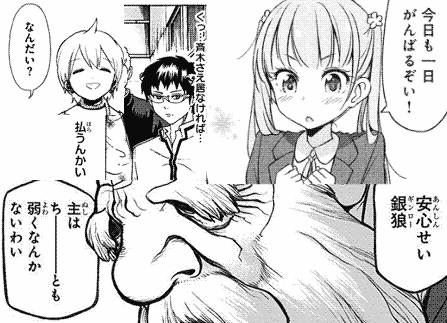
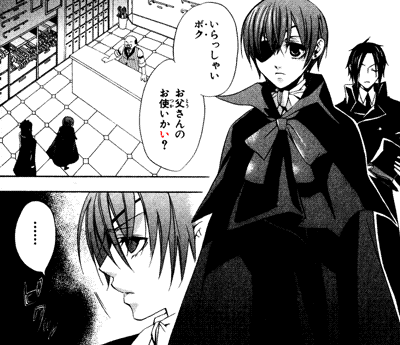
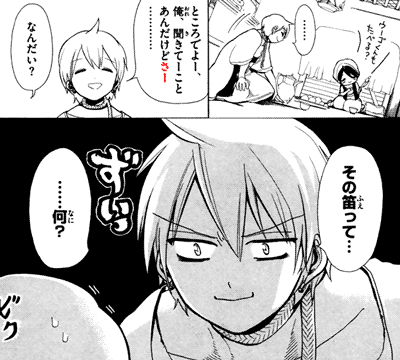
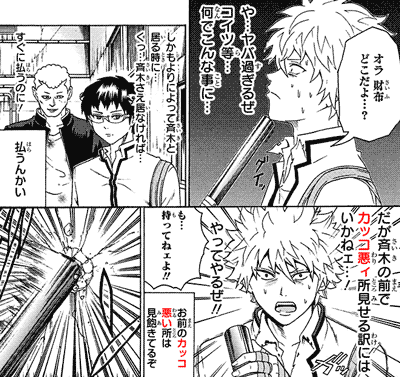
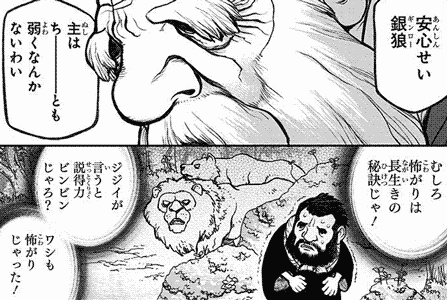
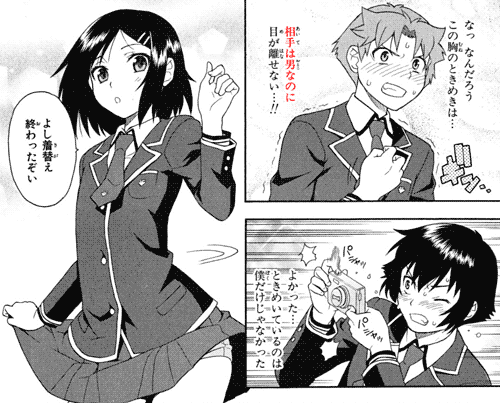
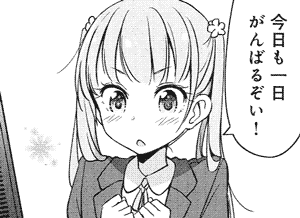
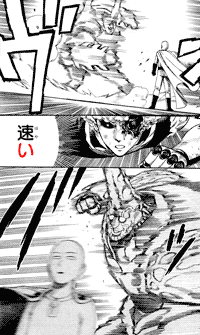
Thank you so much! This has saved me a lot of time from looking up words that I thought I've never heard before.
ReplyDelete